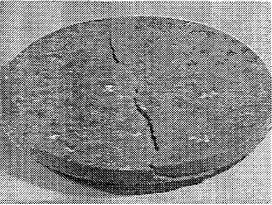Gravity modification, the scientific term for antigravity, is the ability to modify the gravitational field without the use of mass. Thus legacy physics, the RSQ (Relativity, String & Quantum) theories, cannot deliver either the physics or technology as these require mass as their field origin.
Ron Kita who recently received the first US patent (8901943) related to gravity modification, in recent history, introduced me to Dr. Takaaki Musha some years ago. Dr. Musha has a distinguished history researching Biefeld-Brown in Japan, going back to the late 1980s, and worked for the Ministry of Defense and Honda R&D.
Dr. Musha is currently editing New Frontiers in Space Propulsion (Nova Publishers) expected later this year. He is one of the founders of the International Society for Space Science whose aim is to develop new propulsion systems for interstellar travel.
Wait. What? Honda? Yes. For us Americans, it is unthinkable for General Motors to investigate gravity modification, and here was Honda in the 1990s, at that, researching this topic.
In recent years Biefeld-Brown has gained some notoriety as an ionic wind effect. I, too, was of this opinion until I read Dr. Musha’s 2008 paper “Explanation of Dynamical Biefeld-Brown Effect from the Standpoint of ZPF field.” Reading this paper I realized how thorough, detailed and meticulous Dr. Musha was. Quoting selected portions from Dr. Musha’s paper:
In 1956, T.T. Brown presented a discovery known as the Biefeld-Bown effect (abbreviated B-B effect) that a sufficiently charged capacitor with dielectrics exhibited unidirectional thrust in the direction of the positive plate.
From the 1st of February until the 1st of March in 1996, the research group of the HONDA R&D Institute conducted experiments to verify the B-B effect with an improved experimental device which rejected the influence of corona discharges and electric wind around the capacitor by setting the capacitor in the insulator oil contained within a metallic vessel … The experimental results measured by the Honda research group are shown …
V. Putz and K. Svozil,
… predicted that the electron experiences an increase in its rest mass under an intense electromagnetic field …
and the equivalent
… formula with respect to the mass shift of the electron under intense electromagnetic field was discovered by P. Milonni …
Dr. Musha concludes his paper with,
… The theoretical analysis result suggests that the impulsive electric field applied to the dielectric material may produce a sufficient artificial gravity to attain velocities comparable to chemical rockets.
Given, Honda R&D’s experimental research findings, this is a major step forward for the Biefeld-Brown effect, and Biefeld-Brown is back on the table as a potential propulsion technology.
We learn two lesson.
First, that any theoretical analysis of an experimental result is advanced or handicapped by the contemporary physics. While the experimental results remain valid, at the time of the publication, zero point fluctuation (ZPF) was the appropriate theory. However, per Prof. Robert Nemiroff’s 2012 stunning discovery that quantum foam and thus ZPF does not exist, the theoretical explanation for the Biefeld-Brown effect needs to be reinvestigated in light of Putz, Svozil and Milonni’s research findings. This is not an easy task as that part of the foundational legacy physics is now void.
Second, it took decades of Dr. Musha’s own research to correctly advise Honda R&D how to conduct with great care and attention to detail, this type of experimental research. I would advise anyone serious considering Biefeld-Brown experiments to talk to Dr. Musha, first.
Another example of similar lessons relates to the Finnish/Russian Dr. Podkletnov’s gravity shielding spinning superconducting ceramic disc i.e. an object placed above this spinning disc would lose weight.
I spent years reading and rereading Dr. Podkletnov’s two papers (the 1992 “A Possibility of Gravitational Force Shielding by Bulk YBa2Cu3O7-x Superconductor” and the 1997 “Weak gravitational shielding properties of composite bulk YBa2Cu3O7-x superconductor below 70K under e.m. field”) before I fully understood all the salient observations.
Any theory on Dr. Podkletnov’s experiments must explain four observations, the stationary disc weight loss, spinning disc weight loss, weight loss increase along a radial distance and weight increase. Other than my own work I haven’t see anyone else attempt to explain all four observation within the context of the same theoretical analysis. The most likely inference is that legacy physics does not have the tools to explore Podkletnov’s experiments.
But it gets worse.
Interest in Dr. Podkletnov’s work was destroyed by two papers claiming null results. First, Woods et al, (the 2001 “Gravity Modification by High-Temperature Superconductors”) and second, Hathaway et al (the 2002 “Gravity Modification Experiments Using a Rotating Superconducting Disk and Radio Frequency Fields”). Reading through these papers it was very clear to me that neither team were able to faithfully reproduce Dr. Podkletnov’s work.
My analysis of Dr. Podkletnov’s papers show that the disc is electrified and bi-layered. By bi-layered, the top side is superconducting and the bottom non-superconducting. Therefore, to get gravity modifying effects, the key to experimental success is, bottom side needs to be much thicker than the top. Without getting into too much detail, this would introduce asymmetrical field structures, and gravity modifying effects.
The necessary dialog between theoretical explanations and experimental insight is vital to any scientific study. Without this dialog, there arises confounding obstructions; theoretically impossible but experiments work or theoretically possible but experiments don’t work. With respect to Biefeld-Brown, Dr. Musha has completed the first iteration of this dialog.
Above all, we cannot be sure what we have discovered is correct until we have tested these discoveries under different circumstances. This is especially true for future propulsion technologies where we cannot depend on legacy physics for guidance, and essentially don’t understand what we are looking for.
In the current RSQ (pronounced risk) theory climate, propulsion physics is not a safe career path to select. I do hope that serious researchers reopen the case for both Biefeld-Brown and Podkletnov experiments, and the National Science Foundation (NSF) leads the way by providing funding to do so.
(Originally published in the Huffington Post)
